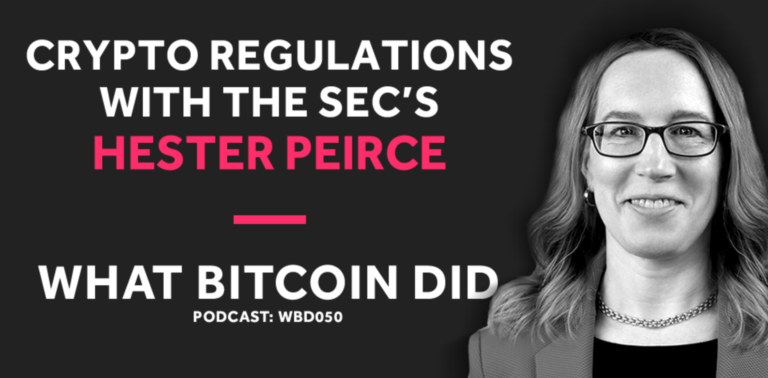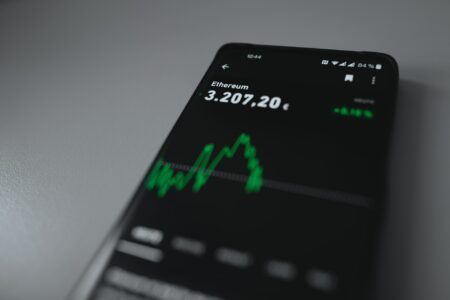Although not “inevitable,” a bitcoin exchange traded fund (ETF) is “definitely possible” in the future, because of the high degree of interest and amount of energy being poured into making it happen, said US Securities and Exchange Commission (SEC) commissioner Hester Peirce. These comments came during a recent interview with Peter McCormack on his What Bitcoin Did podcast.
Commissioner Peirce became a notable figure among crypto enthusiasts this past summer, seemingly overnight, because of her lone dissenting opinion regarding the denied Winklevoss Bitcoin Trust product, the BZX. Topics ranged widely during the show, but for many listeners the most important one was surely the status and process of ETF approvals.
Speaking of ETFs
One of the ongoing concerns, and perhaps the principal concern of the SEC when it comes to approving a bitcoin or other cryptocurrency ETF, is the fear not only that markets trading them can be manipulated, but that this manipulation will not be detectable in a precise way.
In the SEC’s rejection of the BZX, the phrase “a surveillance-sharing agreement with a regulated market of significant size” appears dozens of times in one form or another, emphasizing this prerequisite for being able to effectively monitor an asset’s trading. And although the BZX was to be listed on the Gemini exchange, a New York State regulated exchange, and had a surveillance-sharing agreement with Gemini, the SEC ultimately declaimed that the Gemini exchange, in effect, is not of “significant size.”
In short, the “underlying” bitcoin market (everything not traded on Gemini) was too out of reach of SEC regulators to meet with their approval.
Peirce did not agree with her colleagues in this regard, and she touched on her disagreement during the interview. She seems to be largely on the side of Gemini, recalling that “clearly [Gemini] has thought about the unique features of the underlying market, and they’ve tried to figure out how their product will work taking those [features] into account. And there were protections that were built in, thinking about [that] market.”
One inevitable question she was asked, regarding whether a bitcoin ETF will be approved in future, Peirce responded with a bureaucratically hedging hope:
I think that there’s a lot of interest from investors, from institutional and retail, and from the exchange community, and from sponsors of these products. So I think there’s a lot of intellectual capital being put into addressing some of the [SEC’s] concerns […] We’re getting experience, things are getting more developed […] I can say that, given the amount of time and energy being spent in this area, I think it’s definitely possible that we could […] see products that are based on cryptocurrencies.
She also touched on the careful dance the SEC must play, in her view, between regulating markets on one hand, and trying to tell investors – through regulation – which investments are good investments and which are not, which is the market’s job to assay.
In an eloquent get-out-of-innovation’s-way segment, Peirce described a market’s function in bringing together people with “all kinds of different information” as a “beautiful thing,” and emphasized that regulators do not have a monopoly on the scope of those views.
A Liberal History
A stray comment during the interview alluded to a generally liberal attitude regarding regulation, as Peirce commented on the SEC’s caution in approving a gold ETF nearly fifteen years ago that “I would argue maybe we went too far there, too.”
Further evidence of this bias can be gleaned from recordings of Peirce’s accession hearings, when she was a nominee for her current position at the SEC. Senator Elizabeth Warren, known for her tough stance on financial oversight especially in the context of the 2008 financial crisis and its aftermath, can be seen grilling Peirce on comments she had previously made before joining the SEC; that the Commission had been too intrusive into the workings of businesses and banks, placing her neatly on the laissez-faire side of things.
Bearing this in mind, she might make a curious hero for some crypto enthusiasts, who view the perceived improprieties of overly liberal banking with a healthy dose of suspicion.








